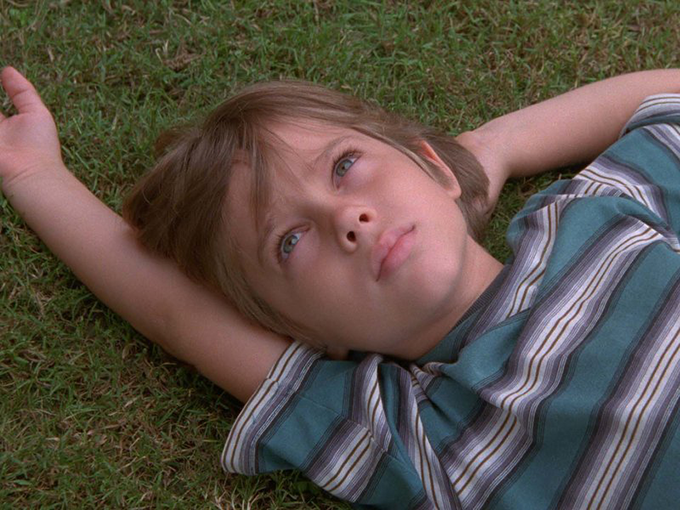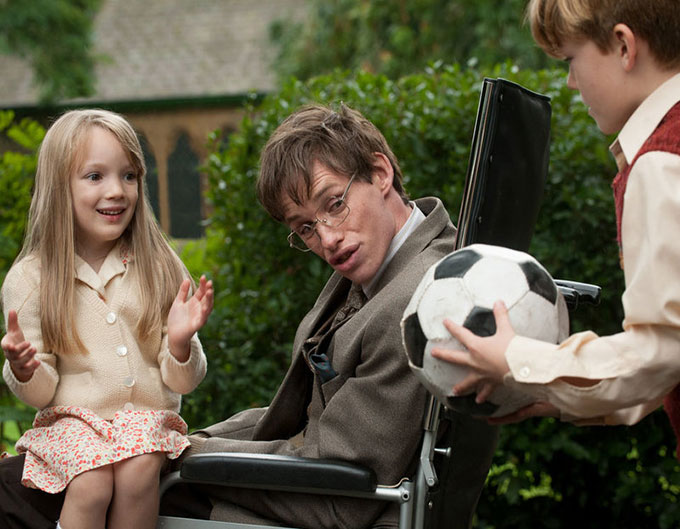February 19, 2015
As Hollywood glams it up for Oscar night this Sunday, policy wonks might not be as interested in the mani-cams on the red carpet as they are in substantive coverage of 2014’s top film contenders.
We took a closer look at this year’s batch of nominated films and found that, alongside the stories of ambition, survival and achievement, many also contained subtle — or not-so-subtle — public policy lessons. Here’s what we took away from the films.
Warning: spoilers below
Best Lesson on Childcare: Boyhood

The Oscars 2015, via http://oscar.go.com/
Boyhood is a coming-of-age drama filmed over a 12-year period, following a young Texan named Mason from the age of six to 18. Mason and his sister are raised by their single mother, Olivia, who must juggle work, school and raising two young children. Early in the film, Olivia moves the family to live closer to her mother to get help with childcare. Ultimately, Olivia completes grad school and becomes a professor. Had she solely relied on market-based childcare available to her at the time, it would have been difficult — especially as a single parent — for Olivia to afford going back to school.
The film depicts the struggle many parents face as they attempt to balance work with childcare. In Canada, access to childcare poses significant issues for many parents. While almost half of parents in Canada rely on some type of childcare service, recent data shows there were only enough full- or part-time formal childcare spaces in 2012 for 22.5 per cent of children under the age of five. Although not all families rely on this type of service, many who do need childcare — such as Olivia — simply don’t have that option. Cost is another barrier, with a recent study showing that median childcare fees in most large Canadian cities take up 25 to 35 per cent of the median salary for women like Olivia, aged 25 to 34. Quebec is the exception given that it provides government funding to families for childcare.
In Ontario, 44 per cent of single parents with one child live in poverty, compared to 13.2 per cent of households with one child and two parents.
The result of this challenge is that many families — especially single-parent families — stay afloat either by devoting a large share of their income to childcare expenses or by foregoing higher income in order to devote more of their time to childcare. In Ontario, 44 per cent of single parents with one child live in poverty, compared to 13.2 per cent of households with one child and two parents. While Olivia was fortunate to have the support of her mother, many Canadians do not have the option of relying on family members for childcare support. But childcare barriers impact more than just families who cannot afford it. They also affect the wider economy because childcare costs keep people out of the labour force, or restrict their opportunities to build skills necessary for new careers, the way Olivia did.
Boyhood is nominated for Best Picture, Best Director, Best Supporting Actor (Ethan Hawke) and Best Supporting Actress (Patricia Arquette).
Best Lesson on Caregiver Supports: The Theory of Everything

The Oscars 2015, via http://oscar.go.com/
The Theory of Everything is a biographical drama about Stephen Hawking, starting with his early days as an astrophysics student at Cambridge University and through his diagnosis and struggle with motor neuron disease (ALS). It illustrates Hawking’s fight to cope with the degenerative illness while continuing to work on his theories of time and space. As Hawking’s health deteriorates, his wife, Jane, grapples with the largely-hidden toll of taking care of him and their three children, and evaluates the family’s ability to afford live-in support to alleviate some of the burden. Ultimately, Hawking was able to continue his work and make historic contributions to the field of theoretical physics because of the attentive care provided by Jane and, later on, that of a personal support worker.
Many Canadians also face the significant financial and personal toll that comes with being a caregiver. The estimated cost of caring for an individual with ALS in Canada is more than $150,000 per year. Even for conditions that require more modest amounts of care, the support provided by health and social services systems leaves major gaps.
In Canada, nearly 8 million people are providing care to family members with long-term health problems, contributing between $5 billion and $25 billion in unpaid labour to the health care system. This has a significant impact on the economy because many caregivers must reduce hours or stop working altogether to provide sufficient care to loved ones. Personal support workers are a costly option for many families, with monthly salaries ranging from $1900 to $3500 for a full-time live-in caregiver. In many cases, caregivers must also cover the costs of specialized medical equipment and other items, further adding to their financial burden.
There are limited options for families in Canada when it comes to offsetting these costs. The government’s major mechanism for caregiver support, EI Compassionate Care Leave, only offers a narrow benefit period of six weeks per year and provides limited job security or income support to those caring for seriously ill family members. Furthermore, the Compassionate Care Leave program only covers those looking after individuals close to death, rather than family members with long-term illnesses. As Canada’s population ages and more people require ongoing care, lack of support for caregivers is only going to become a more serious issue.
In Canada, 8 million people are providing care to family members with long-term health problems, contributing between $5 billion and $25 billion in unpaid labour to the health care system.
The Theory of Everything is nominated for Best Picture, Best Actor (Eddie Redmayne) and Best Actress (Felicity Jones).
Best Lesson on Government Transformation: The Imitation Game

The Imitation Game, http://en.wikipedia.org/wiki/The_Imitation_Game
The Imitation Game tells the story of Alan Turing and his ingenious invention that allowed the Allies to crack Nazi codes during World War II. Turing was a member of Britain’s top secret code-breaking program. While his colleagues focus on trying to decrypt messages using known mathematical techniques that were slow and ineffective, Turing instead spent his time trying to design a machine that would quickly decode every message. However, government concerns about the time and resources required by Turing’s project meant he was given only limited access to equipment and other resources. Eventually, Turing writes a desperate letter to Churchill that convinces the Prime Minister. Turing is provided with the leadership and equipment needed to develop the machine. Turing’s machine would eventually play a key role in ending the war — providing critical information for D-Day — while the technology became the model for modern computers.
Churchill’s openness to Turing’s approach was essential to the successful development of Turing’s machine. More often than not, however, governments are slow to change and adapt to new technologies. For example, many governments still resist digital technologies that could modernize their services in favour of outdated systems, despite the fast pace of technological change in recent decades. Mowat’s report on digitizing government services notes that there are significant benefits to a more innovative public service that embraces digitization, including improved timeliness and effectiveness of decision-making, reduced costs through more targeted resources and increased transparency. However, similar to the challenges faced by Turing, progress within government departments can be constrained by uncertainty of outcomes and fear of failure.
Churchill’s openness to Turing’s approach was essential to the successful development of Turing’s machine. More often than not, however, governments are slow to change and adapt to new technologies.
The Imitation Game is nominated for Best Picture, Best Director, Best Actor (Benedict Cumberbatch) and Best Supporting Actress (Keira Knightley).
Enjoy the Oscars!






